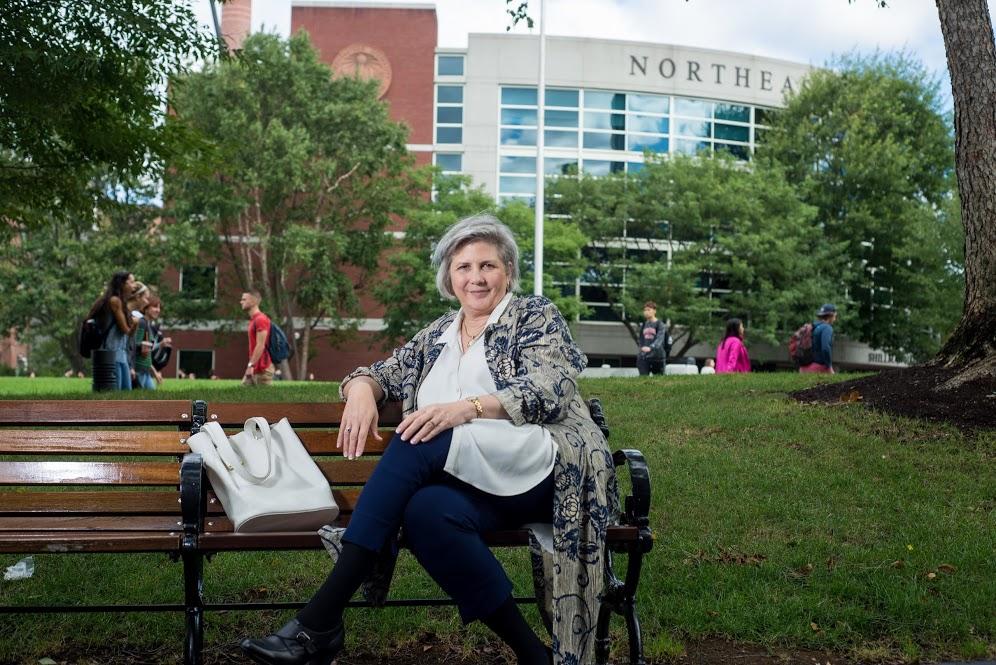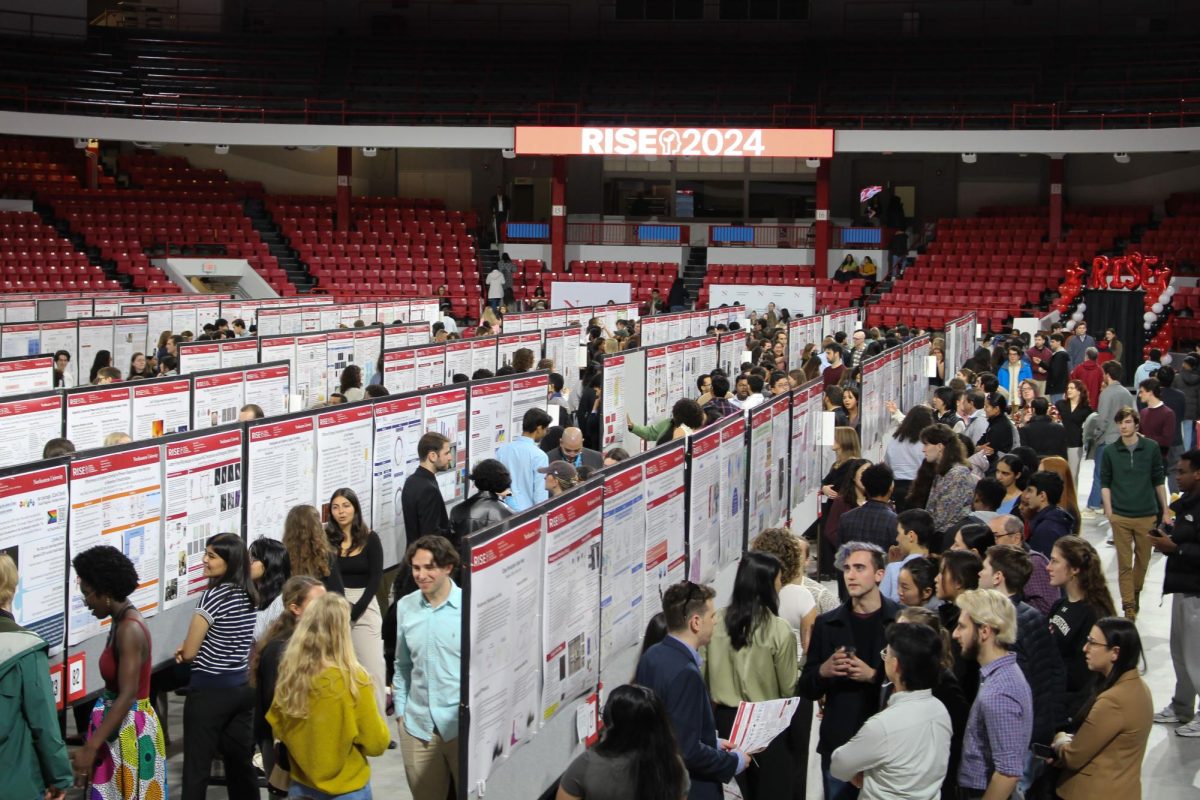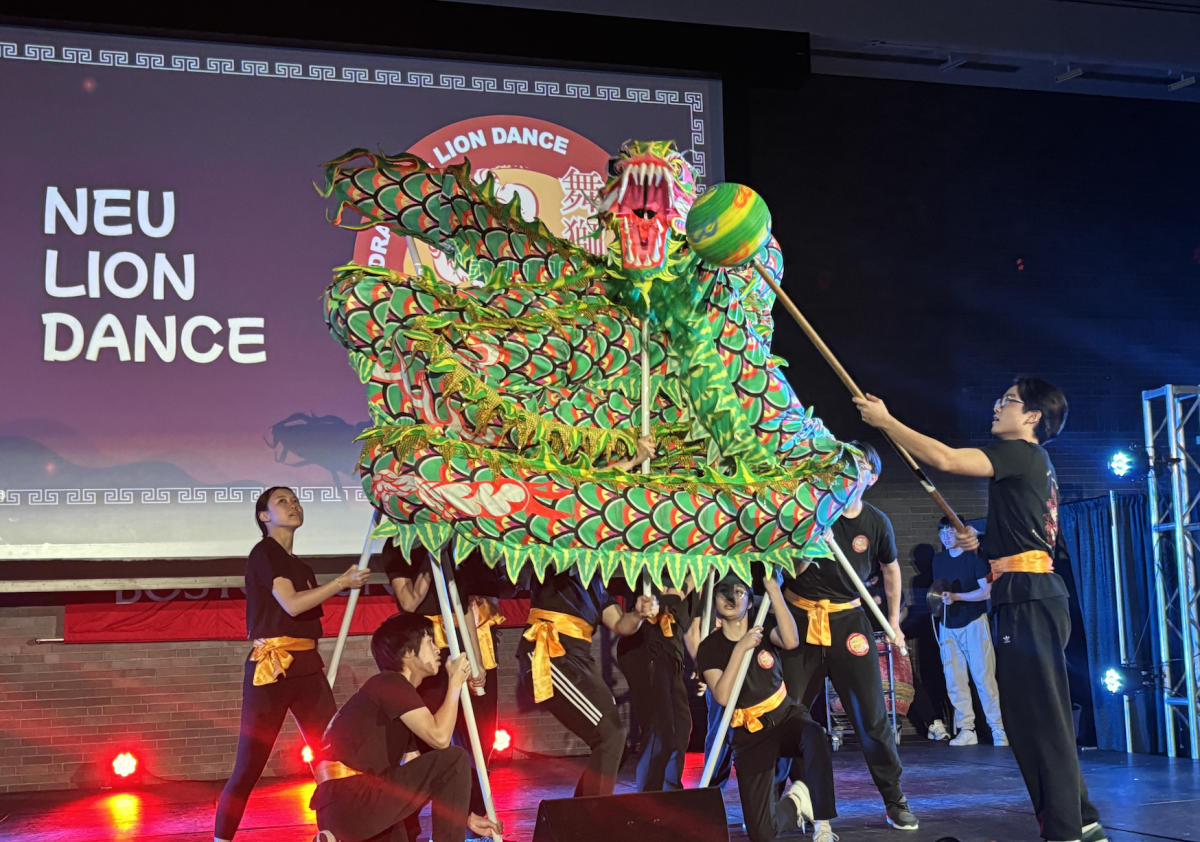By Alejandro Serrano, news correspondent
After a search that lasted more than a year, the College of Arts, Media and Design (CAMD) welcomed a new dean on July 20.
Elizabeth Hudson was previously the inaugural director of the New Zealand School of Music (NZSM) at Victoria University of Wellington for seven years. Before that, Hudson worked in the McIntire Department of Music at the University of Virginia (UVA) as the director of undergraduate programs.
Hudson is replacing Xavier Costa, who served as dean from the college’s founding in 2010 until 2014. Bruce Ronkin, professor of music and the current vice president of undergraduate education at Northeastern,acted as interim dean until Hudson’s appointment.
“The two interactions that I’ve had [with Hudson] have been very positive, personable. She is very willing to listen to your ideas, thoughts and concerns,” Susan Conover, administrative coordinator in the School of Journalism, said. “I think she is going to be able to lead the college into great things and hopefully put our college on the map.”
At Victoria University, Hudson led a merger of Massey’s Conservatorium of Music and Victoria’s School of Music to create NZSM.
“Professor Hudson was a colleague who was consistently open with me and my colleagues on the board of the [New Zealand] School of Music. She was committed to enhancing the academic and performance of students in the school,” Alick Shaw, former head chair of NZSM, said in an email to The News.
Before working for NZSM, Hudson held both faculty and administrative positions at UVA.
Students expressed their desire for a dean who would expand opportunities and create a sense of community within the college.
“An ideal dean would listen to staff and student feedback and work with the CAMD community to make the college an even better place,” Amelia Oon, third-year graphic design major, said.
The News had an opportunity to converse with Hudson about her history and her aspirations for CAMD and the university via email.
The Huntington News: Where do you see yourself and the college in five years?
Elizabeth Hudson: I see CAMD disciplines to be broadly understood as central to the Northeastern student experience and education; and we will boast an array of innovative new programs that will ensure CAMD is widely recognized as a leader in a number of key strategic areas, nationally and internationally, in terms of both faculty reputation and student success.
HN: How was the process of being hired and moving to Boston from New Zealand?
EH: In a word: long! Boston and New Zealand are far away from each other, so it has been an exhaustive (and exhausting) process. But it is terrific to come back to the US after living out of the country for so long; and I am loving getting to know the Boston area.
HN: Coming from being the inaugural director of the New Zealand School of Music, what is the biggest difference in atmosphere that you have encountered?
EH: The New Zealand School of Music was a unique institution in New Zealand, which allowed me to create programs and structures that were new and exciting, but the general atmosphere was one in which change was viewed with trepidation and sometimes even dismay. What I love about Northeastern is the general tone that has been set, from President [Joseph E.] Aoun on down, which encourages all of us to think outside the box, to incorporate innovative thinking across the board in a thoughtful way.
HN: With a rich musical background, how do you plan to incorporate what you know to non-music-related studies within CAMD?
EH: As someone who has worked within the field of opera studies for years, I have actually had to learn a lot about theatre, art + design and even architecture, and I have been embedded in the humanities and media and critical studies throughout my career, which gives me a basis for understanding communication studies and media and screen studies. In many ways, then, although of course I still have a lot to learn, I’m not really starting from scratch. The fields that are most new to me are journalism and maybe game design; but I find learning new things to be very interesting and great fun. I am not afraid to be frank about what I don’t know.
HN: Why are you excited?
EH: There is so much potential here in CAMD, so many fantastic faculty, staff and students doing fascinating things. And the Northeastern University educational model is one that has particularly interesting implications for the disciplines that make up CAMD: if we are ready to take experiential learning to the next level, so that we fuse experiential learning and creative practice with the critical reflection that stems from academic research disciplines, we can participate in the transformation of our disciplines and industries that is needed in the new century.
HN: What advice would you give the entering undergraduate class to maximize their time at Northeastern University?
EH: Northeastern is so rich with opportunities, I would encourage them to explore as widely as possible, to extend themselves in unexpected ways. So take a class that sits far outside their comfort zone; enroll in a dialogue as well as a co-op; get to know their teachers and the staff as well as their fellow students.
HN: Which lone, non-work-related experience would you accredit to feeding your determination every day when you have to work?
EH: That is the hardest question for me to answer! One thing I love about my work is that it requires me to be involved with things that I am genuinely passionate about — things I would be involved with whether or not it was part of my job. So there is such a continuity for me from work to non-work that it is hard to isolate out a non-work-related experience. Like anyone who works in arts-related fields, I can point to a couple of transformative moments — for me, musical experiences — that I always remember. Remembering the texture of those experiences is a crucial reason that I like to challenge how we do things in higher education, because often what we work for in promoting excellence leaves out critical aspects of those experiences—and it is those experiences, that, for me, must always define excellence.
Photo by Scotty Schenck












